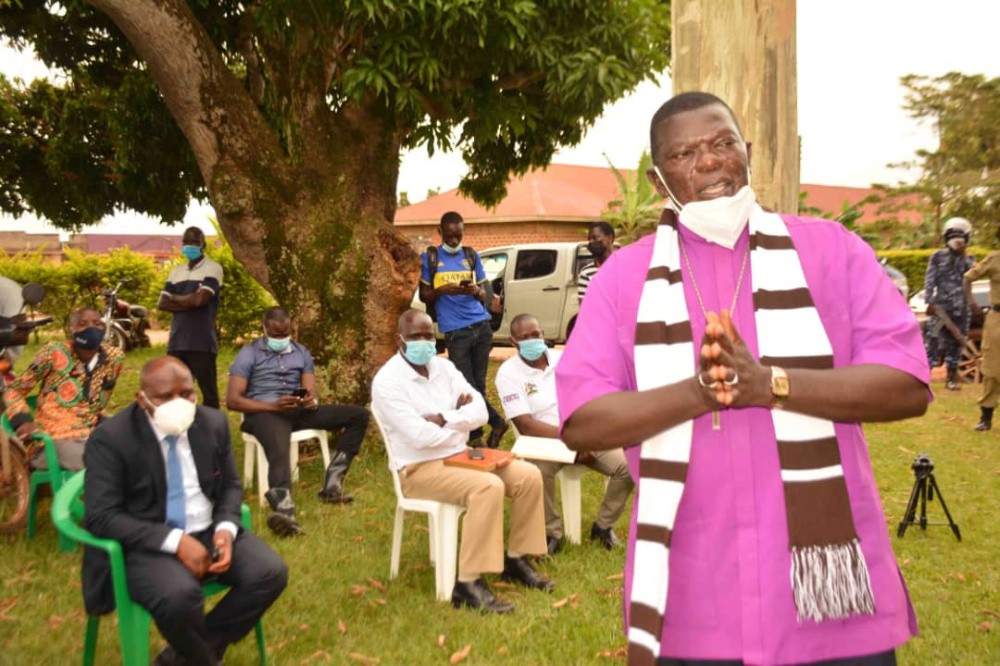Kampala, Uganda
The Anglican Church of Uganda has indicated it will not allow expectant mothers to return to school after the government directed the lifting of a two-year lockdown on primary and secondary schools.
In an interview with journalists on Saturday, 8th January, at his home in Mukono District, central Uganda, Anglican Bishop of Mukono Diocese James William Ssebaggala revealed that schools affiliated to the church will not accept expectant mothers when the new term starts on 10th January.

Bishop James William Ssebaggala addressing stakeholders in Mukono Diocese at a meeting recently. PICTURE: John Semakula.
Ssebaggala said the church-founded schools would only permit students who conceived during the lockdown and had delivered their babies before the schools reopened.
He said the position is intended to fight immorality in church-founded schools. The prelate explained that allowing expectant students in schools could encourage other learners to engage in immorality.
More than 15 million Ugandan children are returning to school on 10th January after the government lifted a two-year lockdown that was imposed on primary and secondary schools on 20th March, 2020, to prevent the spread of COVID-19. Among those returning are teenage and expectant teenage mothers.
Statistics at the Uganda Gender, Labour and Social Development Ministry show that 9,000 underage girls were impregnated in 2020, the first year of the lockdown in Uganda. This figure is, however, small since many cases of child rapes, known formally as defilement, are not reported to the authorities in Uganda by parents who fear to participate in endless court battles.
Due to the growing number of teenage pregnancies, Uganda’s Ministry of Education directed recently that all teenage mothers and expectant students should be allowed to return to school. The move is contrary to the policy that existed before the lockdown under which they were excluded.
The government also advised parents with expectant girls to take them to government-aided schools where they will be easily accepted. There are concerns, however, over standards in many of these schools when compared to private institutions and those owned by the church.
In their Christmas messages, top religious leaders in Uganda condemned men who have exploited underage girls during the lockdown and impregnated them.
In his message, the Archbishop of the Anglican Church, Stephen Kaziimba Mugalu, observed that the rate of teenage pregnancies had spiked during the pandemic and that it is unlikely that teenage mothers will get a chance to return to school in the coming year.
The Anglican Church of Uganda owns more than 40 per cent of the country’s schools including 2000 pre-primary schools, 5200 primary schools, 620 secondary schools, and six universities. The church started founding the schools in 1887 following the arrival of the Anglican Church Missionary Society in Uganda from Britain.
Ugandan children are returning to school as the country enters the third wave of COVID-19. Uganda’s Minister of Health Dr Jane Ruth Aceng announced last week that with the COVID-19 infection rate at 23.3 per cent of the population, the country had already entered the third wave.





